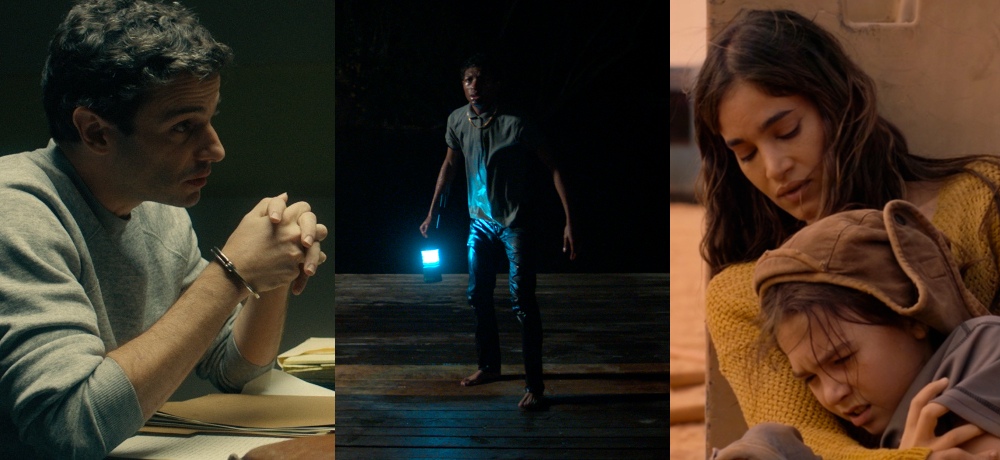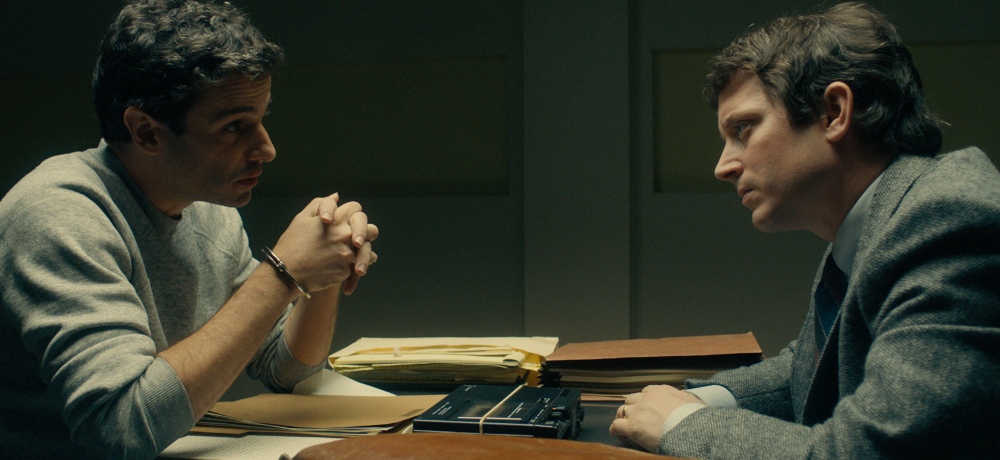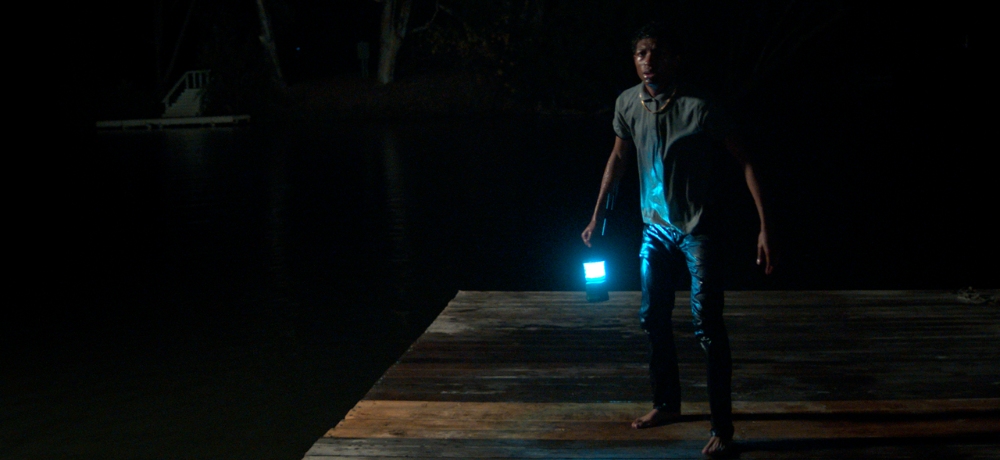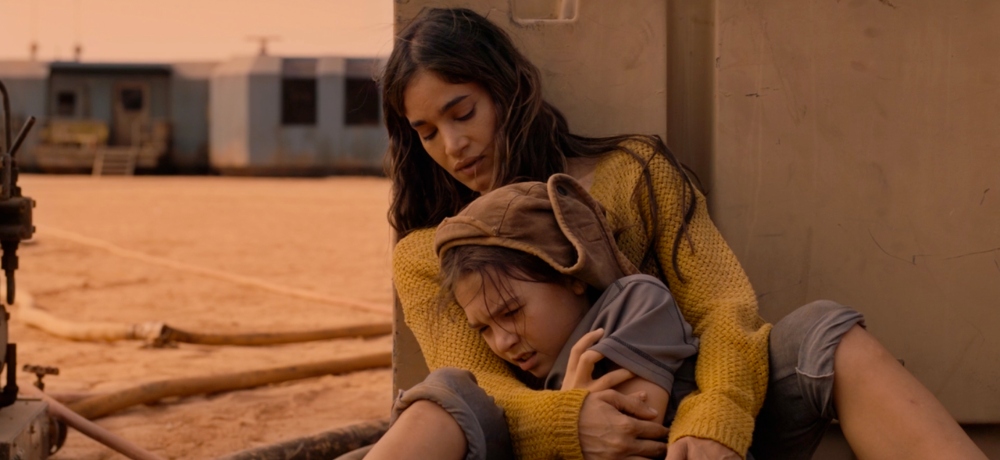


With the 2021 Tribeca Film Festival now officially wrapped, after making history for being the first in-person film festival since the beginning of the COVID-19 lockdown, the genre movies it premiered are also noteworthy, particularly for their relatable characters and vital themes. No Man of God, No Running, and Settlers are all remarkable thrillers for their powerful messages of people standing up for, and not backing down from, what they believe in.

No Man of God: Biographical crime thrillers that chronicle the cases of real-life serial killers often sensationalize the criminal’s crime spree in order to shock their audiences. But director Amber Sealey’s new movie No Man of God is a stunning and welcome entry in the genre, as it instead chooses to study the full spectrum of the human condition following the murders committed by notorious serial killer, Ted Bundy.
Written by Kit Lesser and set in the mid-1980s, No Man of God follows the relationship that forms between Bundy (Luke Kirby) and FBI Agent Bill Hagmaier (Elijah Wood), after the murderer was sentenced to death by electrocution at Florida State Prison. In the years that followed their first meeting, Bundy agreed to disclose the details of his crimes, but only to Hagmaier, who he came to consider to be a close friend. The duo developed a complicated relationship while the convict was incarcerated and trying to overturn his execution.
The drama is a psychologically intricate telling of the emotional ramifications of one of the most horrific crime sprees in American history. Kirby perfectly exudes the equally manipulative and desperate personality that Bundy exuded during his intimate conversations with Hagmaier. The actor’s captivating performance heled Wood naturally infuse his portrayal of the FBI Agent with the ethical question of whether the prisoner he came to know so personally should live or die.
The characters’ enthralling and captivating relationship and ever-changing power dynamic are highlighted in part by the powerful way the actors are framed by cinematographer Karina Silva. When Bundy and Hagmaier first meet in a holding room in Florida State Prison, the convicted murderer is visually presented as a smaller man than the FBI Agent, such as only being partially shown through the latter’s arms. But as Hagmaire begins to speak with Bundy and understand his motivations, Silva starts to present the two men on the same level, which emphasizes the fact that the two are truly beginning to understand each other.
No Man of God leaves a lingering feeling of unease as Hagmaier ponders the moral ramifications of deciding whether or not murderers like Bundy are truly remorseful for their crimes, and if they should be allowed to live. While in no means exonerating the real-life Bundy of his heinous crimes, the film is a powerful character study that examines the possibility that even the most notorious criminals may truly develop a sense of remorse for their victims as they reflect on their vicious actions. Driven by Kirby and Wood’s stellar performances, No Man of God is the quintessential character study of how psychological examinations can help the government understand, and possible even reform, criminal offenders.
Movie Score: 4.5/5
----------

No Running: Delmar Washington’s feature film directorial debut chillingly explores the all-too-important current dilemma of how systemic racism infiltrates every element of the upbringing of minorities across America. The sci-fi thriller, which was written by Tucker Morgan, follows high school student Jaylen Brown (Skylan Brooks) as he moves with his mother, Ramila (Rutina Wesley), to a small town after he defends her from her abusive ex-boyfriend. The teenager’s past actions label him as being prone to violent behavior by his new classmates, as well as the local police, including the sheriff (Shane West).
Jaylen is therefore immediately put under suspicion when one of his peers, Amira (Clark Backo), mysteriously disappears while they spend time together at a party. Forced to work quickly to clear his own name as he tries to figure out what’s really going on in the town, Jaylen begins to unravel a massive web of secrets that all but suggest otherworldly forces are at play.
No Running is the rare sci-fi movie that’s rooted in real societal conflicts, which are the true driving force of the story. Brooks’ powerful portrayal of the young protagonist, who’s determined to clear his name of all wrongdoing, perfectly highlights the drama’s gripping message that American minorities continue to be targeted and brutalized by not only law enforcement agents, but also their peers, who are more interested in seeing a case being closed than justice being served.
While the mystery of what really happed to Amira during the party unfolds, Jaylen is presented as the perfect representation of the legal justice system failing to believe in a person’s innocence just because of their race. That message is powerfully showcased by Brooks’ gripping, breakout performance as the complex anti-hero. Through Jaylen’s nuanced transformation of wanting to find out what really happened to his classmate, while also subconsciously falling back on his forceful nature that has labeled him as being aggressive, Brooks’ performance perfectly reflects what many other people who are in similar situations as him have contended with in their lives.
Washington had respectable intentions in wanting to create a sci-fi mystery thriller that’s grounded in contemporary society’s struggles for minorities who are still being wrongfully judged for their past actions without all of the details of the situation being taken into consideration. While No Running also features a powerful, standout performance from Brooks in the role of the conflicted young protagonist set against the story’s overall important warnings about societal indiscretions, the filmmaker unfortunately misses the opportunity to create a more visually complex and intriguing story. Despite the lack of interaction between Jaylen and the otherworldly threat, as well as a few action sequences and special effects, the drama is an inspiring insight into American society's fight against racism and law enforcement corruption.
Movie Score: 3.5/5
----------

Settlers: Being the first to pioneer a new, unfamiliar frontier can ultimately prove to be a challenge for even the strongest people, as seen in the Western sci-fi thriller Settlers. First-time feature film writer/director Wyatt Rockefeller crafts an intimate, character-driven drama that explores how a small, close-knit family must conquer the daunting wilderness on their own without any connections with outside civilization.
Seeking refuge from a devastated Earth, Reza (Jonny Lee Miller), Ilsa (Sofia Boutella), and their nine-year-old daughter Remmy (Brooklynn Prince) look to survive the barren sprawl of Mars, only to find that they're not alone when a mysterious visitor named Jerry (Ismael Cruz Córdova) and a group of dangerous cohorts kidnap Remmy, who eventually grows up to be a teenager (played by Nell Tiger Free) while held captive.
Rockefeller creates stunningly complex and developed characters, particularly in Ilsa, Remmy, and Jerry, who struggle to survive the challenges of their dull monotony in their existences on Mars, as well as their fear of the unknown. Boutella and Córdova were particularly well cast as the most distinctly developed characters in the movie, as Isla and Jerry continuously clash and then try to coinhabit in their unforgiving environment.
Isla and Jerry are both driven by their strong belief that they hold the sole right to maintain the property they both feel they possess a rightful claim over. The couple’s complex relationship, which is more often tumultuous than peaceful, is highlighted by the stunning sets crafted by production designer Noam Piper. From the simple, sterile building that serves as the characters’ home, which reflects the emotional separation they feel from each other, to the endless rolling hills that surround their property and offer little protection from the attack brought on from Jerry and his cohorts, the thriller is a visually inventive pioneer in the unique sci-fi Western subgenre.
While Settlers begins as an intriguing Western that chronicles the struggles a strong-willed family faces while trying to colonize a new frontier and create a better life for themselves, and slowly morphs into a full sci-fi thriller by its midway point, its plot unfortunately doesn’t live up to its full potential throughout its entire runtime. The story’s lack of clear narrative direction and details about the characters’ histories and motives, including how they came to inhabit the same property and why they don’t have contact with other people, makes the film feel a bit slow and redundant, despite its captivating performances and promising visuals.
Despite its at times underwhelming plot points and lack of full character development, Settlers is still a fascinating, unique Western sci-fi thriller that features riveting, intimate performances from its small cast and a captivating production design. From Boutella and Córdova’s fierce performances that highlight the undeniably passionate resilient bond between Ilsa and Jerry, to the intimate, captivating sets, the drama is visually and emotionally grounded in the struggles pioneers face as they set out to conquer new frontiers.
Movie Score: 3/5